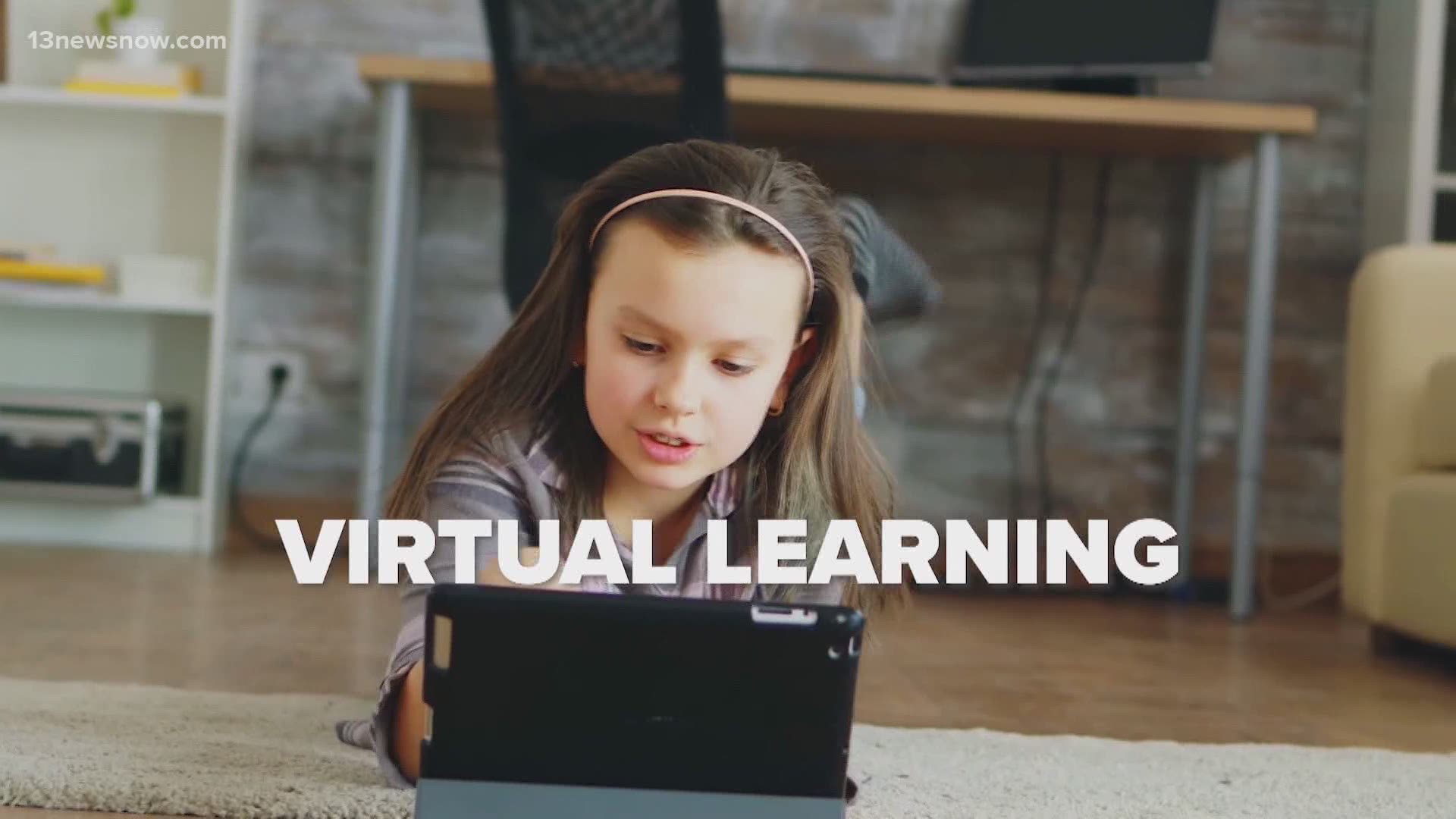VIRGINIA BEACH, Va. — "If you want to know how long their attention lasts, divide their age in half; so if you have a 5-year-old, expect two minutes of attention."
That's the rule of thumb according to Dr. Denelle Wallace, the Associate Dean of the Norfolk State School of Education, and that was before kids transitioned to virtual learning.
"In the virtual learning world, these matters could be exacerbated," warns Dr. Wallace.
The lack of social interaction, the lack of a role model to follow, available distraction, lack of routine, general anxiety in the news of each day can all negatively impact a child's ability to pay attention during a pandemic.
There are remedies, according to Wallace.
A clear designated learning space, a set routine, limited exposure to COVID-related news, incorporating non-academic components such as art and PE, and allowing them to have input in their day are all ways one can help their child concentrate.
At the top of that list, however, is a measure that involved both parent and child.
Doing your own mental health check. Your kids know you, they can sense when you are anxious, stressed, or if something's bothering you. Talk to them about these emotions, and listen when they tell you about theirs.
Wallace sees the pandemic as an opportunity.
"You will get to know your child so much better, so take advantage of this opportunity, because childhood goes fast."

